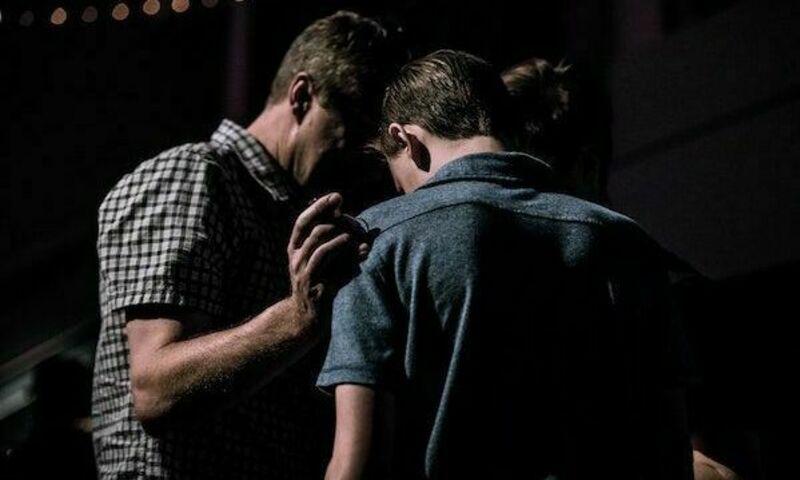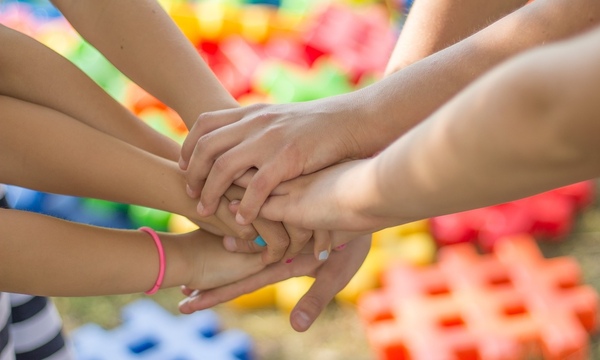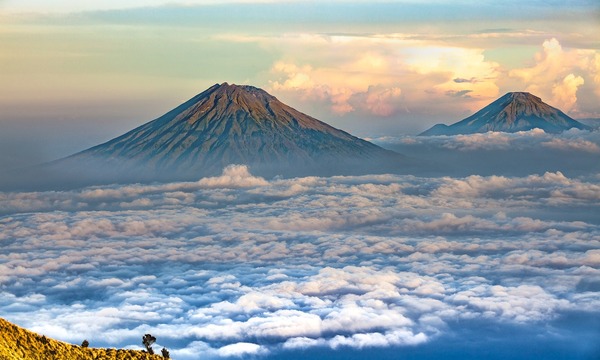Twenty years ago, my wife and I were living with our two daughters in a suburb on the northern edge of New York City. The shock waves from the two planes that slammed into the World Trade Towers reverberated across the nationŌĆöand indeed, around the worldŌĆöbut it was categorically different living in New York on that day. One of our neighbors was a firefighter who died in the collapse of one tower. People we knew personally were trying desperately to reach loved ones who worked in the City. In some cases, they didnŌĆÖt get reunited with their loved ones for as long as two days. In other cases, those reunions never took place.
But what I remember most vividly from that terrible day was how calamity drove people to pray. People who never prayed when life was normal decided for some reason that they needed to pray on that particular day.
Why do people pray when facing tragedy, calamity, or catastrophe?
A Spirit-sensitive friend called me on the afternoon of September 11th and suggested that we hang a sign outside our church: Open for Prayer. As a result, more than 100 people who never would have thought of going near a churchŌĆöin a suburb where almost nobody went to churchŌĆöentered our church to pray.
But why do people pray when facing tragedy, calamity, or catastrophe?
We opened the microphone for people to share. ŌĆ£My husbandŌĆ”I havenŌĆÖt heard from him since he left for work this morning.ŌĆØ ŌĆ£My daughterŌĆ”I donŌĆÖt know where she is.ŌĆØ ŌĆ£My fianc├®eŌĆ”.ŌĆØ ŌĆ£Please pray.ŌĆØ
We interspersed times of prayer with songs affirming GodŌĆÖs sovereignty and care. ŌĆ£Oh God Our Help in Ages PastŌĆ”ŌĆØ ŌĆ£Savior, Like a Shepherd Lead Us.ŌĆØ
People who never sang songs such as these sang along with us that day. Why sing along on that particular day?
My friend and I walked the auditorium, laid our hands on the shoulders of people who were weeping, and implored God for mercy. We sang more songs, and kept praying. Many hours later, the last of those who came for prayer departed.
Why do people pray when facing tragedy, calamity, or catastrophe? In particular, why do so many people who otherwise ignore God move toward him when disaster strikes?
The most likely reason that people move toward God on such dark days is that deep down they know that God is actually there, even though in their daily lives they suppress such knowledge. Romans 1:18-32 teaches that people both know that God is there and suppress that knowledge.
v. 18: they ŌĆ£suppress the truthŌĆØ
v. 19: ŌĆ£what can be known about God is plain to them, because God has shown it to themŌĆØ
v. 20 ŌĆ£his eternal power and divine nature have been clearly perceivedŌĆ”in the things that have been madeŌĆØ
v. 21 ŌĆ£although they knew God, they did not honor him as │ę┤Ū╗ÕŌĆØ
v. 21 ŌĆ£their foolish hearts were darkenedŌĆØ
v. 25 ŌĆ£because they exchanged the truth about God for a lieŌĆØ
v. 28 ŌĆ£since they did not see fit to acknowledge │ę┤Ū╗ÕŌĆØ
v. 32 ŌĆ£though they know God's righteous decreeŌĆØ
People pray during times of calamity because deep down they know that God is around to hear their prayer. Granted, some people have suppressed that God-implanted knowledge so thoroughly that even when calamity strikes, they still donŌĆÖt cry out to God. But the fact that so many people do call upon God during times of crisis highlights the truth that in some way they still know that God is thereŌĆöand that they think he might even be willing to listen to them when they pray. They normally just donŌĆÖt acknowledge it.
The night following that first amazing prayer time, my ministry partner and I hung the same sign outside the church: Open for Prayer. At least 80 more people entered, mostly folk who had not come the previous nightŌĆöonce again, primarily people who were unconnected to any church. Together we wept, and prayed, and sangŌĆöand then wept, and prayed, and sang some moreŌĆöuntil there were no more tears, no more prayers to be prayed, and our list of songs was exhausted.
The people praying that night and the night before normally ignored God, but on those two nights called out to him anyway.
Now, it is a fact that most of the people who prayed in our church on those two nights never came back. Once the immediate crisis abated, they likely returned to previous patterns, despite having called out to God for help during their exigency. I do know, however, that in the decade following the attacks of 9/11, there was an upsurge in churches planted in New York City. Perhaps some of the people in that great city who called out to God during their time of need pursued that general knowledge until they came into a personal relationship with Jesus Christ, which is the only way to personally know God. I hope some of them didŌĆ” Sometimes disaster reminds people of truths that they know deep downŌĆösuch as the fact that God existsŌĆöbut such awareness is easily laid aside after an emergency has passed.
Why do people pray during times of crisisŌĆöpeople who never pray at any other time? Because they know God exists, even if they normally suppress that knowledge.
Whenever I think of 9/11, which I often do, one of the things I recurrently ponder is how the calamity of that day drove people to pray who otherwise never would have prayed. Their prayers illustrate the BibleŌĆÖs teaching that people know about GodŌĆÖs existence, even if they donŌĆÖt know that they know it. Sometimes crises bring that knowledge to the surface.
Notes
1 Bob Smietana, ŌĆ£Urban Planters: Building Off Believers? Who fills the churches of the Big Apple?ŌĆØ
This post and other resources are available at
 ║┌┴Ž└·╩Ę
║┌┴Ž└·╩Ę


.jpg)

